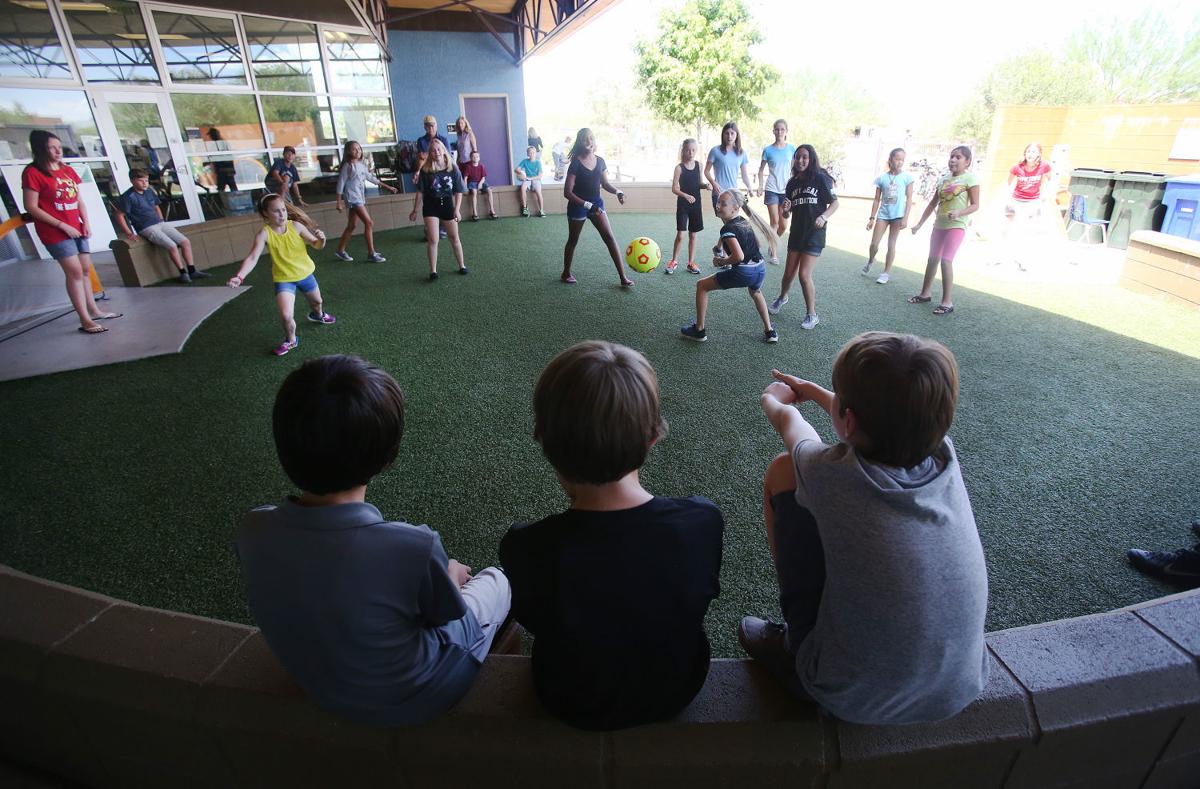PHOENIX — Concluding that students who get a break will learn better, the House Education Committee voted Monday to require at least two recess periods during the day for those in kindergarten through fifth grade.
Unlike proposals in prior years, Senate Bill 1083 does not spell out how long those breaks need to be. It says only one of the breaks can be right after lunch and one can be during a scheduled physical education period.
Sen. Sylvia Allen, R-Snowflake, the sponsor of the legislation, said she is convinced that these breaks from learning are needed.
"Our children are very stressed,'' she told lawmakers.
Some of that, Allen said, is due to home life and breakdown of families. And some of it follows the increased pressure on schools for academic performance, she said.
Allen said schools can't have students under those kinds of stresses and then expect them to perform academically.
"Recess is allowing kids to go out and let it go,'' she said.
The idea of mandatory free time for students has been pushed for years.
Last year lawmakers considered a proposal to require all schools to offer at least 50 minutes of recess a day to students in kindergarten through fifth grade. That died amid opposition from those who felt the mandate was too strict.
Allen said that's why she crafted SB 1083, which already has cleared the Senate, to be more flexible, with no minimums and no set times. Chris Kotterman, lobbyist for the Arizona School Boards Association, agreed this is an improvement. But he told lawmakers they should leave these decisions to locally elected school boards.
"School districts do not make purposeful decisions that harm children,'' Kotterman said.
Allen, however, cited testimony from parents who said they have approached school superintendents and school district boards seeking multiple recess periods, only to have their requests spurned.
It wasn't just parents urging lawmakers to mandate the dual recess periods.
"There's actually empirical evidence that this is effective in improving academic achievement and attention,'' testified former state health director Will Humble, now working with the Arizona Public Health Association.
Scott Turner, founder of the newly formed Healthy Futures U.S. program, told lawmakers that the increased focus on academic performance at the expense of free time has resulted in a sharp increase in the number of children with diabetes.
Despite unanimous committee approval for SB 1083 its future remains uncertain, at least in this form.
Rep. Michelle Udall, R-Mesa, said she wants the measure altered when it comes to the House floor to allow schools to opt out of a second recess if there are insufficient certificated teachers or administrators available to provide safe supervision.
Allen said she's willing to scale back her measure so it covers only students through third grade if that's what it takes to get enough House votes.
Allen separately convinced the same committee to unanimously approve SB 1082. It would spell out in law full-day kindergarten programs must be not only "academically meaningful'' but also must "incorporate play as an instructional strategy.''
Here, too, Allen said she sees a link between physical activity and the ability to learn. "It's very hard for little 5-year-olds and 6-year-olds to hold still,'' she said. "Studies are showing they learn much better when they can have activity involved in their learning.''
This measure, too, now goes to the full House.





